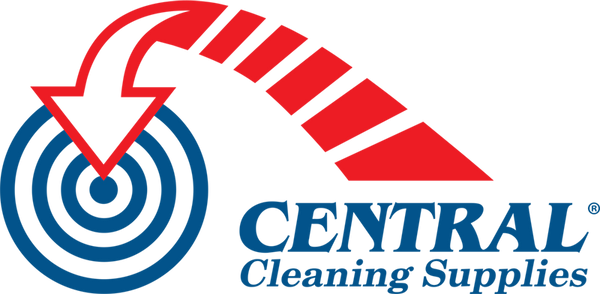
Do Cleaning Supplies Expire? Safety & Shelf Life Guide
Share
Cleaning Supply Safety Secrets
Discover the hidden dangers lurking in your cleaning cabinet and master the critical safety knowledge that protects your family from expired products. Learn the insider secrets of proper storage, identification, and disposal that professional cleaners use to maintain safe, effective cleaning routines.
The Hidden Truth About Cleaning Supply Expiration
Most people never realise that the cleaning products in their homes are slowly losing effectiveness and potentially becoming safety hazards. Unlike food, cleaning supplies don't have obvious spoilage signs, making it easy to use products that no longer work properly or could pose health risks.
The reality is sobering: Expired cleaning products don't just lose cleaning power – they can undergo chemical changes that create toxic fumes, cause skin irritation, or fail to disinfect when you need them most. Understanding expiration is essential for maintaining both cleaning effectiveness and family safety.
⏰ Critical Expiration Timeline Guide
Every cleaning product has a finite lifespan determined by its chemical composition, storage conditions, and exposure to environmental factors. Understanding these timelines is crucial for maintaining both safety and effectiveness in your cleaning routine.
Liquid Bleach
Loses 20% potency every year. Heat and light accelerate degradation. Replace immediately if yellow tint appears or chlorine smell weakens significantly.
Disinfectant Wipes
Dry out quickly once opened. Moisture content critical for effectiveness. Replace if wipes feel dry or packaging seal is compromised.
Natural Cleaners
Lack preservatives, expire faster than chemical alternatives. Watch for separation, mold growth, or off odors as early warning signs.
Baking Soda & Vinegar
Longest-lasting cleaners when stored properly. Baking soda can clump but remains effective. Vinegar's acidity preserves itself naturally.
Bathroom Cleaners
Formulated for mold and mildew resistance. Effectiveness reduces gradually. Replace if spray mechanism clogs frequently or foaming decreases.
All-Purpose Cleaners
Stable formulations with good longevity. Monitor for color changes, separation, or reduced cleaning performance as indicators of expiration.
Professional Insight
Professional cleaning services replace products on strict schedules regardless of appearance because they understand that effectiveness diminishes gradually before obvious signs appear. Don't wait for dramatic changes – proactive replacement ensures consistent results and safety.
🚨 Danger Signs: Identifying Expired Products
Learning to identify the subtle warning signs of product expiration can prevent cleaning failures and protect your family from potential health hazards. These indicators often appear gradually and require careful observation.
Unusual Odor Changes
Off-putting smells, loss of characteristic scent, or development of rancid odors indicate chemical breakdown. Fresh products should smell consistent with their intended fragrance or cleaning agent scent.
Visual Transformation
Color changes, cloudiness, separation of ingredients, or visible particles floating in liquid products signal degradation. Clear products should remain clear, and consistent colors shouldn't shift or fade.
Texture & Consistency Changes
Thickening, thinning, clumping, or grainy texture in previously smooth products indicates expiration. Spray mechanisms may clog more frequently as products break down.
Reduced Effectiveness
Products that no longer clean as well, require more product for same results, or fail to produce expected foaming or sudsing action have likely expired and lost potency.
⚠️ The Critical Safety Risks of Expired Products
Health Hazard Warning
Using expired cleaning products isn't just ineffective – it's potentially dangerous. Chemical degradation can create toxic compounds, cause allergic reactions, or produce harmful fumes that pose serious health risks to your family.
Full potency, optimal safety, reliable results
Gradual potency loss, monitor closely
Safety risk, ineffective cleaning, dispose properly
🏆 Master Storage Techniques for Maximum Shelf Life
Professional Storage Strategies
Professional Storage Secret
Commercial cleaning services use climate-controlled storage areas and implement strict inventory rotation systems. They understand that proper storage can extend product life by 50% or more while maintaining safety and effectiveness standards.
♻️ Safe Disposal: Protecting Your Family & Environment
Critical Disposal Safety Protocols
- Never Pour Down Drains: Cleaning Chemicals can contaminate water supplies and damage septic systems or municipal treatment facilities
- Avoid Regular Trash: Liquid chemicals can leak, react with other waste, or contaminate landfills and groundwater
- Read Label Instructions: Manufacturers provide specific disposal guidance based on chemical composition and local regulations
- Use Hazardous Waste Centers: Most communities offer free hazardous waste disposal days for safe chemical handling
- Keep Original Containers: Never transfer products to unmarked containers before disposal – labels provide crucial safety information
- Neutralise When Possible: Some products can be safely Neutralised before disposal following manufacturer guidelines
Environmental Impact Awareness
Improper disposal of cleaning products contributes to water pollution, soil contamination, and ecosystem damage. Responsible disposal protects both your immediate environment and the broader community while complying with environmental regulations.
❓ Expert Answers to Common Questions
Frequently Asked Safety Questions
Protect What Matters Most
Understanding cleaning supply expiration isn't just about maintaining clean homes – it's about protecting your family's health and safety. By mastering proper storage, recognising expiration signs, and implementing safe disposal practices, you create a cleaning routine that delivers results while prioritising the wellbeing of everyone in your home.
Take control of your cleaning safety today. Your family's health depends on the knowledge and vigilance you bring to this essential aspect of home maintenance.

